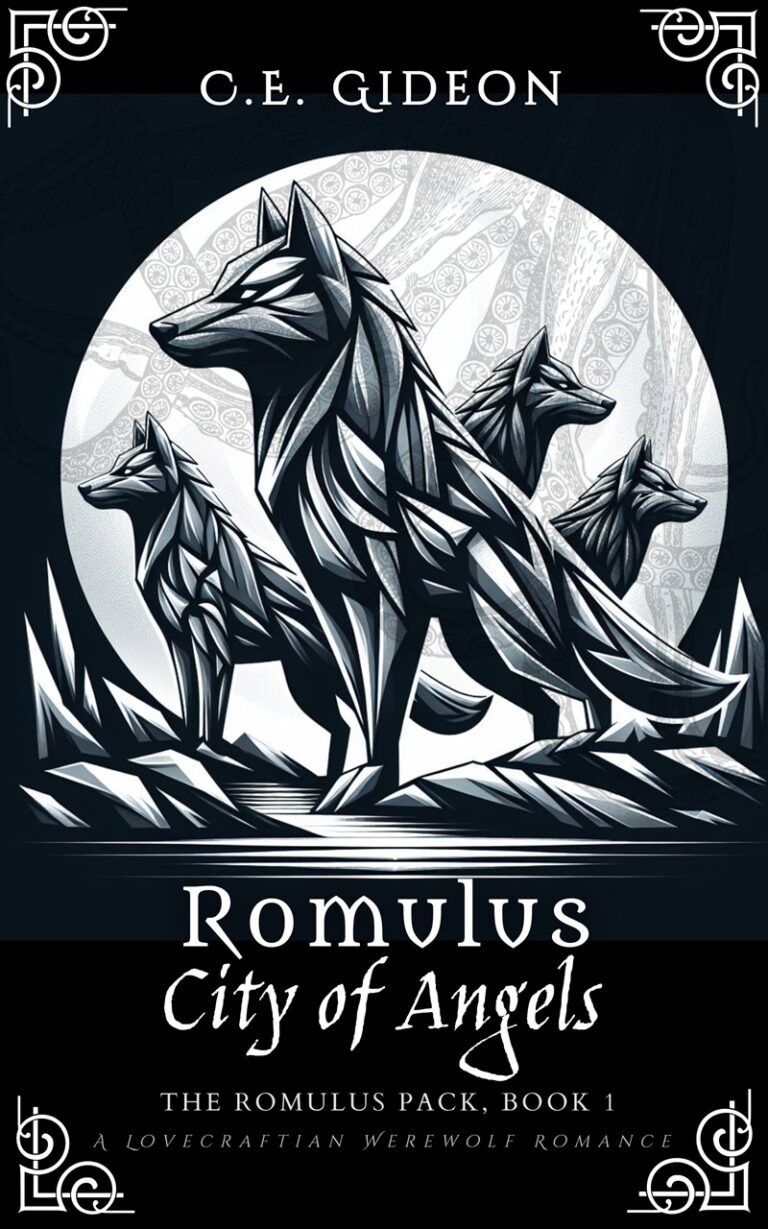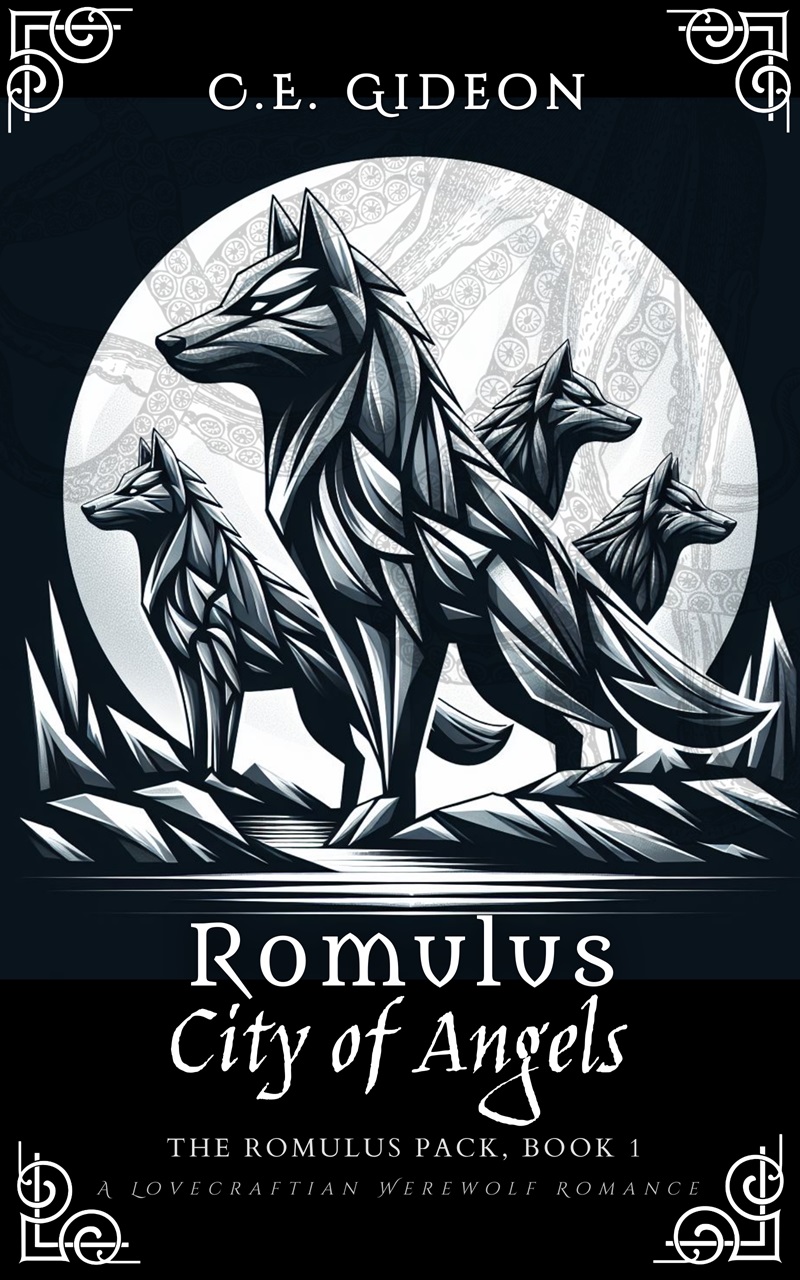In C.E. Gideon’s debut urban fantasy novel, ROMULUS: CITY OF ANGELS (the first book in the Romulus Saga), ER nurse Olivia Bautista finds herself thrust into a hidden world of supernatural intrigue and cosmic horror. As the book opens, Olivia is struggling to rebuild her life after escaping a toxic relationship. She feels like she’s sleepwalking through a waking dream, disconnected from the world around her. Then, one fateful night, everything changes when Olivia encounters four enigmatic (and handsome) strangers.
This meeting catapults her out of the mundane world and into a hidden realm of supernatural forces engaged in a clandestine war for the fate of Los Angeles. Olivia learns that she has latent oracular powers that make her a key player in the conflict and must quickly master her newfound abilities so she can help her new companions defend the city from terrifying cosmic horrors.
As she’s drawn deeper into this strange new world of magic and monsters—and a burgeoning romance with her mysterious guardians—Olivia discovers that this dangerous new job comes with some unexpected perks. As Olivia trains with them to develop her powers, she finds herself drawn to each of them, setting up an intriguing romantic subplot with the potential for a polyamorous relationship.
Gideon’s tale blends the pulse-pounding action of urban fantasy, the swooning romance of paranormal love stories, and the mind-bending terror of Lovecraftian horror. It’s a heady brew that delivers a thrilling and immersive reading experience. Gideon populates this tale with a menagerie of memorable horrors, from sentient shadows to Mayan death cults, each rendered in unsettling detail: “An obscene worm-like tongue lolled across the ground, lapping at rivulets of blood flowing out around its exposed ribs.” These sequences crackle with dark imagination and showcase Gideon’s flair for the macabre.
The novel’s thoughtful approach to polyamory sets ROMULUS apart from many of its urban fantasy peers. While the subgenre has long been known for its sexy, superpowered romances, it often falls back on conventional relationship structures and heteronormative pairings. By centering a consensual, ethically non-monogamous dynamic, the novel challenges these norms and broadens the genre’s scope. Gideon handles the theme with sensitivity and care, never reducing Olivia’s feelings to mere titillation or wish-fulfillment. Instead, they use the dynamic to explore deeper questions of identity, autonomy, and the nature of romantic connection.
Of course, the execution isn’t always perfect. While Olivia is a likable and relatable protagonist, she hews a bit too closely to the “chosen one” archetype, complete with a destiny she doesn’t understand and powers she can’t control. Her supernatural love interests, meanwhile, often veer into well-worn tropes: the brooding leader, the charming rogue, the quiet poet.
That said, there’s no denying the exuberant imagination on display. The Lovecraftian horrors, when they appear, are genuinely unsettling. Gideon has a keen eye for the dark wonders lurking at the edges of our world and a gift for revealing the monstrous through telling details: “The ambling thing warped and shifted its grotesque mass, becoming vaguely squid-like. It had tentacles now, and opened its maw wide to reveal a well of bloody neon-red light welling up out of its gullet.” Gideon’s prose is razor-sharp and darkly funny, packed with wry observations and clever turns of phrase: “Fuck, he thought. I’m about to get killed by a woman with camel toe. Look at her shoulders. Do *not* look at the camel toe.”
In a publishing landscape still dominated by heteronormative narratives, ROMULUS stands out as a beacon of progress and possibility. Its commitment to inclusive storytelling and its willingness to push boundaries make it an essential read for anyone hungry for a more equitable and representative urban fantasy canon.
C.E. Gideon’s ROMULUS: CITY OF ANGELS is an ambitious urban fantasy debut that deftly blends romance, adventure, and Lovecraftian horror. Gideon’s vivid prose and dark imagination make this a promising start to a series.
~Edward Sung for IndieReader


